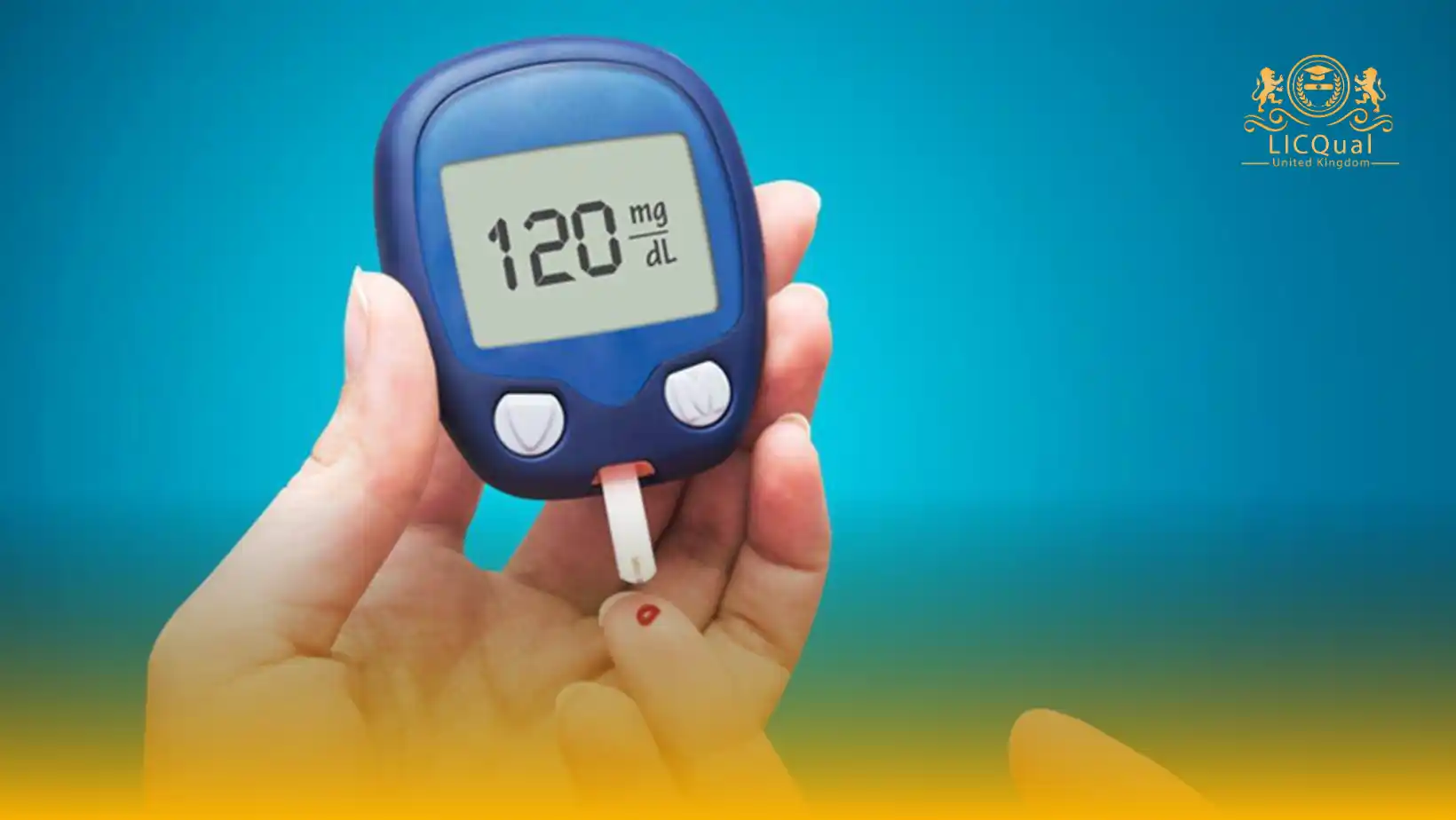The LICQual Level 3 Diploma in Telehealth and Remote Healthcare Management is a specialized qualification designed for healthcare professionals seeking to develop expertise in delivering and managing remote healthcare services. This diploma is aimed at learners with prior experience in healthcare or management roles who wish to enhance their professional knowledge, lead telehealth initiatives, and advance their career prospects. It is not intended for fresh entrants, but for motivated professionals committed to expanding their skills and demonstrating competence in the evolving field of telehealth.
Learners undertaking this diploma will gain comprehensive knowledge of telehealth technologies, remote patient monitoring, digital healthcare systems, and virtual care delivery. The programme equips learners with practical skills to manage telehealth services effectively, ensuring patient safety, data security, and high-quality care. By applying theory to real-world scenarios, learners are prepared to implement telehealth solutions, oversee remote care teams, and optimise healthcare delivery across digital platforms.
Centres delivering this qualification must maintain high standards of training, employing competent and qualified staff, and providing access to up-to-date learning resources, digital tools, and suitable facilities. This ensures learners receive a high-quality educational experience that maximises engagement, practical understanding, and successful completion.
Ideal for healthcare managers, telehealth coordinators, clinical leaders, and professionals responsible for implementing remote care services, the LICQual Level 3 Diploma in Telehealth and Remote Healthcare Management also supports Continuing Professional Development (CPD). Learners completing this diploma will enhance their professional credibility, demonstrate leadership in digital healthcare delivery, and position themselves for career progression within the rapidly evolving telehealth sector.
Course Overview
Qualification Title
LICQual Level 3 Diploma in Telehealth and Remote Healthcare Management
Total Units
6
Total Credits
60
GLH
240
Qualification #
LICQ2200749
Qualification Specification
To enroll in the LICQual Level 3 Diploma in Telehealth and Remote Healthcare Management applicants must meet the following criteria:
|
Qualification# |
Unit Title |
Credits |
GLH |
|---|---|---|---|
|
LICQ2200749-1 |
Introduction to Telehealth and Remote Healthcare |
10 |
40 |
|
LICQ2200749-2 |
Telehealth Technologies and Digital Platforms |
10 |
40 |
|
LICQ2200749-3 |
Remote Patient Management and Care Delivery |
10 |
40 |
|
LICQ2200749-4 |
Data Security, Confidentiality, and Compliance |
10 |
40 |
|
LICQ2200749-5 |
Project Management in Telehealth Services |
10 |
40 |
|
LICQ2200749-6 |
Professional and Ethical Responsibilities in Telehealth |
10 |
40 |
By the end of this course, learners will be able to:
1. Introduction to Telehealth and Remote Healthcare
By the end of this unit, learners will be able to:
- Explain the principles, purpose, and importance of telehealth in modern healthcare.
- Analyse different models and applications of remote healthcare delivery.
- Evaluate the benefits, challenges, and limitations of telehealth services.
- Assess the impact of digital healthcare on patient outcomes and organisational efficiency.
2. Telehealth Technologies and Digital Platforms
By the end of this unit, learners will be able to:
- Identify key telehealth technologies, including virtual consultations, remote monitoring, and electronic health records.
- Evaluate digital platforms for effectiveness, accessibility, and data security.
- Apply technological solutions to enhance patient care and streamline healthcare processes.
- Analyse emerging trends and innovations in telehealth and digital healthcare.
3. Remote Patient Management and Care Delivery
By the end of this unit, learners will be able to:
- Develop strategies for remote patient assessment, monitoring, and follow-up.
- Implement care plans and interventions suitable for virtual healthcare settings.
- Monitor patient safety, clinical outcomes, and quality of care in remote services.
- Promote patient engagement, adherence, and satisfaction in telehealth delivery.
4. Data Security, Confidentiality, and Compliance
By the end of this unit, learners will be able to:
- Apply legal, ethical, and regulatory requirements relevant to telehealth services.
- Implement data protection and confidentiality protocols in remote healthcare.
- Identify and manage risks related to digital healthcare provision.
- Ensure compliance with organisational and national healthcare standards.
5. Project Management in Telehealth Services
By the end of this unit, learners will be able to:
- Plan, implement, and manage telehealth projects effectively.
- Allocate resources, set clear objectives, and monitor project progress.
- Evaluate project performance and identify areas for improvement.
- Apply problem-solving techniques to overcome challenges in remote healthcare delivery.
6. Professional and Ethical Responsibilities in Telehealth
By the end of this unit, learners will be able to:
- Demonstrate professional conduct, accountability, and integrity in telehealth practice.
- Apply ethical decision-making in telehealth and remote care scenarios.
- Support patient-centred care while ensuring regulatory compliance.
- Promote continuous professional development to maintain up-to-date knowledge in telehealth.
This diploma is designed for healthcare professionals looking to develop expertise in telehealth and remote healthcare management, enabling them to lead digital care initiatives effectively. Learners who should enrol include:
- Healthcare Managers and Supervisors: Professionals responsible for implementing and overseeing telehealth services and remote care programmes.
- Clinical Practitioners and Team Leaders: Individuals seeking to deliver high-quality virtual care and manage patient outcomes in remote settings.
- Digital Health Coordinators and Administrators: Professionals managing telehealth technologies, virtual platforms, and remote patient monitoring systems.
- Project and Change Management Professionals: Individuals leading projects, service improvements, or transformation initiatives in telehealth.
- CPD-Focused Professionals: Learners committed to Continuing Professional Development (CPD) who wish to enhance their skills in digital healthcare delivery.
- Professionals Seeking Career Advancement: Individuals aiming for leadership, strategic, or managerial roles in telehealth and remote healthcare services.
By completing this diploma, learners will gain practical skills, technological knowledge, and professional confidence, equipping them to deliver, manage, and optimize remote healthcare services while improving patient care and supporting organizational efficiency.
To deliver the LICQual Level 3 Diploma in Telehealth and Remote Healthcare Management effectively, centres must meet the following requirements to ensure high-quality training and successful learner outcomes:
- Qualified and Competent Staff: Centres must employ experienced and qualified tutors with expertise in telehealth, remote healthcare management, digital healthcare technologies, and clinical leadership. Tutors should support learners in both theoretical knowledge and practical application.
- Adequate Learning Resources: Centres should provide access to up-to-date textbooks, case studies, telehealth platforms, digital tools, software, and online learning materials to support effective study and assessment.
- Suitable Training Facilities: Centres must maintain classrooms or virtual learning environments conducive to study, equipped with computers, projectors, internet access, and other teaching aids suitable for telehealth training.
- Assessment and Quality Assurance Procedures: Centres must implement robust assessment strategies, internal verification, and quality assurance processes to ensure fair, accurate, and consistent evaluation of learner performance.
- Learner Support: Centres should provide guidance, mentoring, and access to resources that help learners complete practical projects, develop technical skills, and achieve their professional development goals.
- Health, Safety, and Accessibility Standards: Centres must maintain safe, accessible, and inclusive learning environments, adhering to all relevant regulations and best practices to protect learners and staff.
Meeting these requirements ensures that centres can deliver a high-quality learning experience, equipping learners with the knowledge, skills, and confidence needed to excel in telehealth, remote healthcare management, and leadership roles.
Assessment and Verification
All units within this qualification are subject to internal assessment by the approved centre and external verification by LICQual. The qualification follows a criterion-referenced assessment approach, ensuring that learners meet all specified learning outcomes.
To achieve a ‘Pass’ in any unit, learners must provide valid, sufficient, and authentic evidence demonstrating their attainment of all learning outcomes and compliance with the prescribed assessment criteria. The Assessor is responsible for evaluating the evidence and determining whether the learner has successfully met the required standards.
Assessors must maintain a clear and comprehensive audit trail, documenting the basis for their assessment decisions to ensure transparency, consistency, and compliance with quality assurance requirements.







